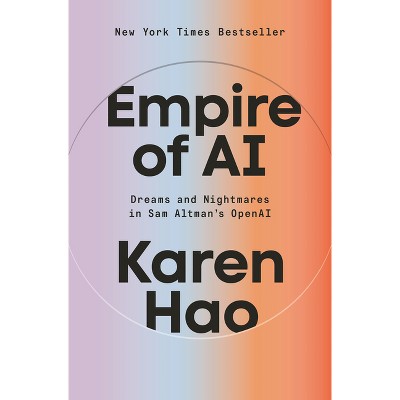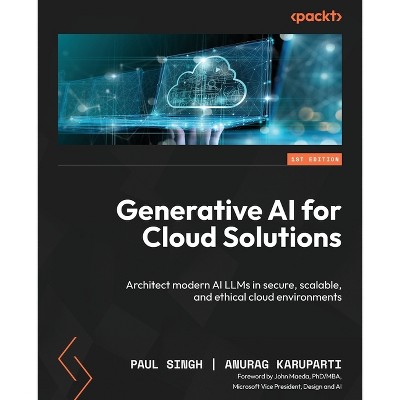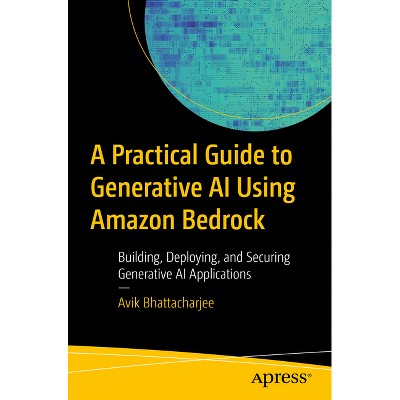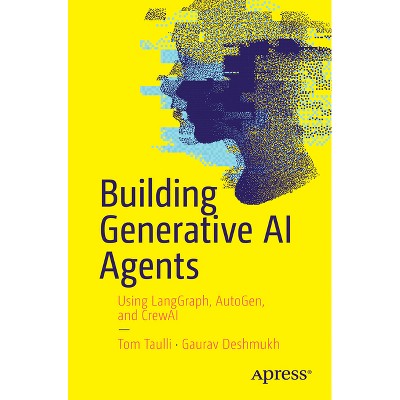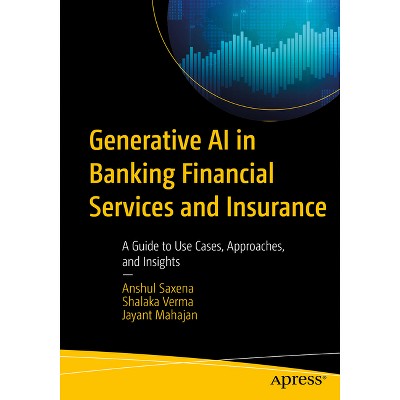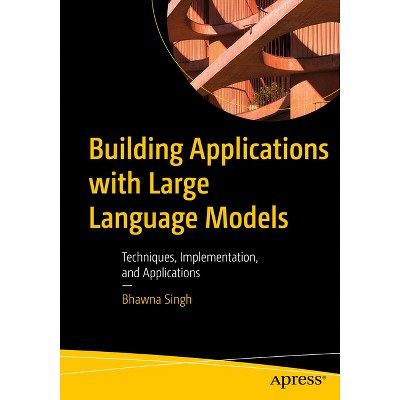Sponsored

Generative AI in R - by Akansha Singh & Krishna Kant Singh (Paperback)
Out of Stock
Sponsored
About this item
Highlights
- Leverage Generative AI within the R programming environment and prepare for future directions and how new innovations can be applied in the R ecosystem.
- About the Author: Akansha Singh is a professor in the School of Computer Science and Engineering at Bennett University, Greater Noida, India.
- 353 Pages
- Computers + Internet, Intelligence (AI) & Semantics
Description
Book Synopsis
Leverage Generative AI within the R programming environment and prepare for future directions and how new innovations can be applied in the R ecosystem. This pioneering book is designed to bridge the gap between the advanced realms of Generative AI and the practical, statistical computing power of R. You'll begin with an introduction to Generative AI principles and its significance in the current data-driven landscape. You'll then dive into the practicalities of implementing generative models such as Generative Adversarial Networks (GANs) and Variational Autoencoders (VAEs) in R. See how R, most known for its statistical analysis, can also be used for creative synthetic data, improving model robustness, and generating innovative insights from data. Additionally, this book addresses the demand for ethical AI by emphasizing the use of synthetic data to tackle privacy and data scarcity issues--concerns particularly relevant in healthcare, finance, and social research. We are at a pivotal moment in the evolution of AI and data science. With AI's growing importance, the book's focus on R makes advanced techniques more accessible, promoting ethical and innovative data science practice, preparing readers for upcoming trends. What You Will Learn- Grasp the core concepts of Generative AI and its significance in the broader AI landscape. Implement various generative models in R, such as GANS and VAEs. Generate high-quality synthetic data. Apply advanced techniques for improving efficiency and effectiveness of models for different applications. Understand Gen AI ethical considerations.
From the Back Cover
Leverage Generative AI within the R programming environment and prepare for future directions and how new innovations can be applied in the R ecosystem. This pioneering book is designed to bridge the gap between the advanced realms of Generative AI and the practical, statistical computing power of R.
You'll begin with an introduction to Generative AI principles and its significance in the current data-driven landscape. You'll then dive into the practicalities of implementing generative models such as Generative Adversarial Networks (GANs) and Variational Autoencoders (VAEs) in R. See how R, most known for its statistical analysis, can also be used for creative synthetic data, improving model robustness, and generating innovative insights from data.
Additionally, this book addresses the demand for ethical AI by emphasizing the use of synthetic data to tackle privacy and data scarcity issues--concerns particularly relevant in healthcare, finance, and social research. We are at a pivotal moment in the evolution of AI and data science. With AI's growing importance, the book's focus on R makes advanced techniques more accessible, promoting ethical and innovative data science practice, preparing readers for upcoming trends.
About the Author
Akansha Singh is a professor in the School of Computer Science and Engineering at Bennett University, Greater Noida, India. With an impressive academic background that includes a B.Tech, M. Tech, and a Ph.D. in Computer Science from IIT Roorkee, her expertise lies primarily in image processing, deep learning and machine learning. Dr. Singh's academic contributions extend beyond teaching; she has played significant roles as an Associate Editor and Guest Editor for several scholarly journals.
She has written more than 100 research papers in reputed journals, conferences, and books and authored more than 30 books in advanced computer science areas. Her dedication to research is evident through her leadership in government-funded projects as a Principal Investigator. Her research interests encompass a broad range of topics, including image processing, remote sensing, IoT, and machine learning.
Krishna Kant Singh serves as the Director of the Delhi Technical Campus, Greater Noida, India, bringing a wealth of teaching and research experience to his role. He hold multiple degrees, including a B. Tech, M. Tech, MS, and a Ph.D. from IIT Roorkee, all focused on image processing and Machine Learning. Dr. Singh has authored over 140 research papers in esteemed Scopus and SCIE indexed journals, along with 25 technical books, showcasing his profound impact on the field.
He is also the associate editor of IEEE ACCESS and many other journals of high repute. He has also served as a Guest Editor for Open Computer Science, Wireless Personal Communications, Complex and Intelligent systems, and many other journals. Additionally, his involvement in the Editorial Board of Applied Computing and Geosciences (Elsevier) highlights his significant contributions to academia and research.
Shipping details
Return details
Trending Computers & Technology Books




